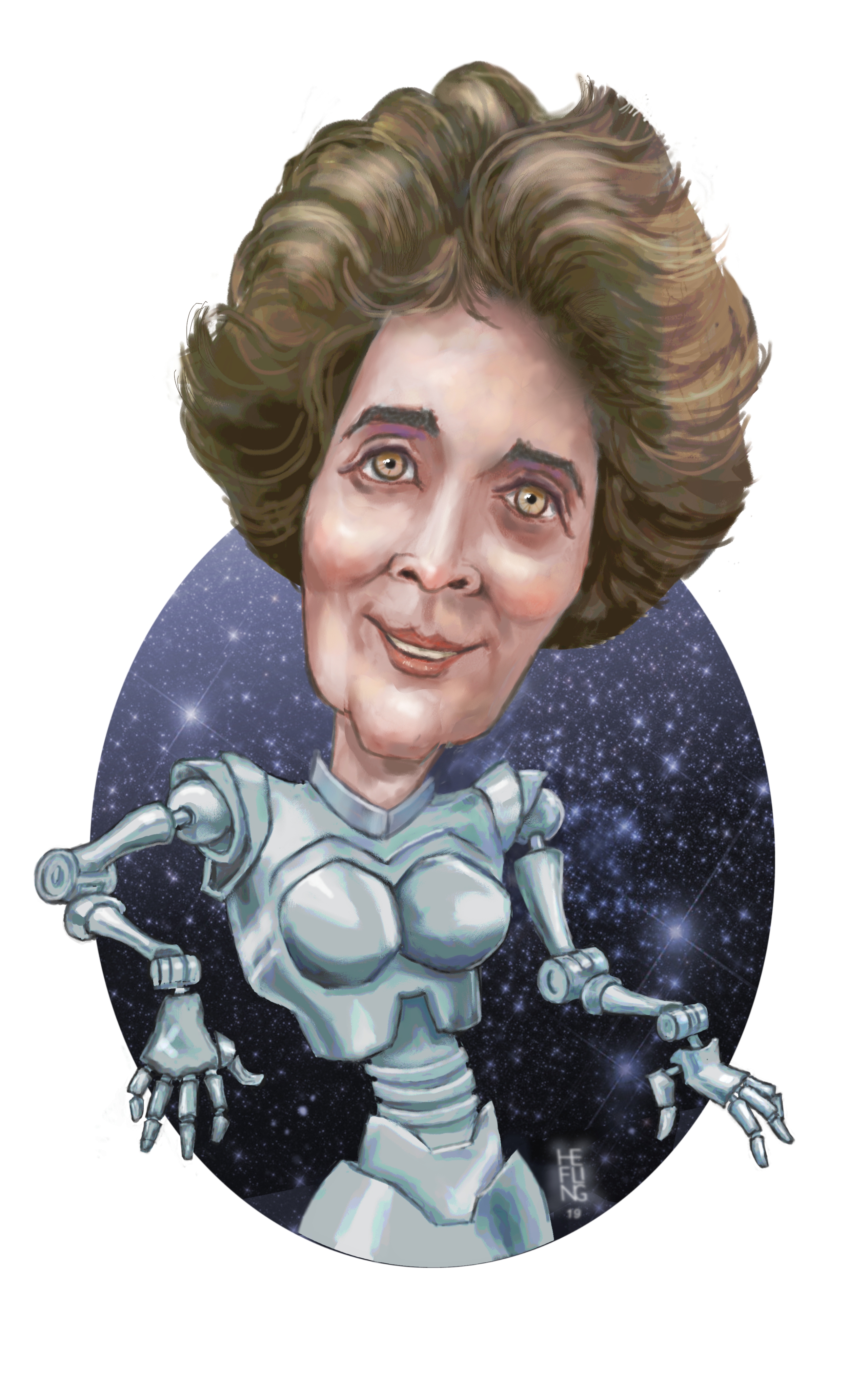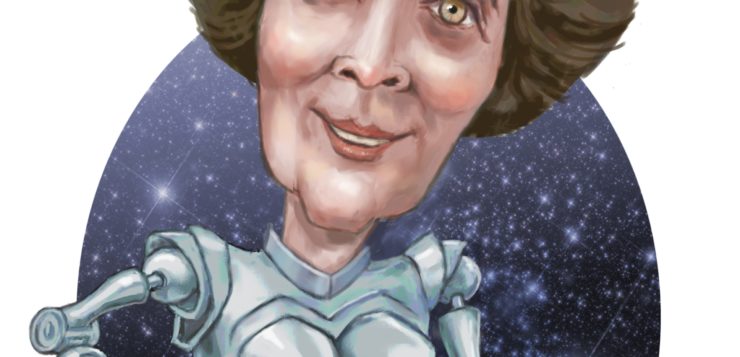 Joanna Russ
Joanna Russ
by Gwyneth Jones
Univ. of Illinois Press. 224 pages, $22.
IMAGINE that you are a gifted Jewish child growing up in the 1940s and ’50s, reading science fiction stories and physics textbooks. You earn a BA in English Literature from Cornell in 1957 and an MFA in playwriting from Yale in 1960. You want to teach college, and you learn that Cornell’s English Department is hiring new professors. But… you are a woman, and this department has never hired a woman to date. In fact, during the “domestic revival” of the post-World War II years, open positions at universities were given to men only.
Such was the employment environment faced by Joanna Russ (1937–2011) in the early 1960s. Whip-smart, assertive, and ambitious, she was forced to take office jobs and radio work to make a living. It was not until 1969, after she had published numerous science fiction stories, book reviews, essays, and a novel, that she was hired to teach at Cornell.
Apart from her career as an academic, which included a daring study on Willa Cather, Joanna Russ is famous for four decades of groundbreaking feminist science fiction and criticism. Her short stories won the Nebula Award in 1972 and the Hugo Award in 1982. In 1988 she was honored with the Pilgrim Award for her lifetime contribution to science fiction and fantasy scholarship, and in 2013 she was inducted into the Science Fiction Hall of Fame. How was she able to break into the field of science fiction—a notoriously male domain—as an author and critic while at the same time she faced rampant discrimination in the academic world?
The answer is twofold. First, science fiction at that time was regarded as the lowest form of genre literature. Second, the best-known science fiction authors recognized Russ’ talent, encouraged her writing, and published her. In other words, they let her into the club.
 Joanna Russ, by Gwyneth Jones, is the most recent entry in the University of Illinois Press’s “Modern Masters of Science Fiction” series.
Joanna Russ, by Gwyneth Jones, is the most recent entry in the University of Illinois Press’s “Modern Masters of Science Fiction” series.
Martha K. Davis is the author of the novel Scissors, Paper, Stone, which won the Quill Prose Award in 2017.







